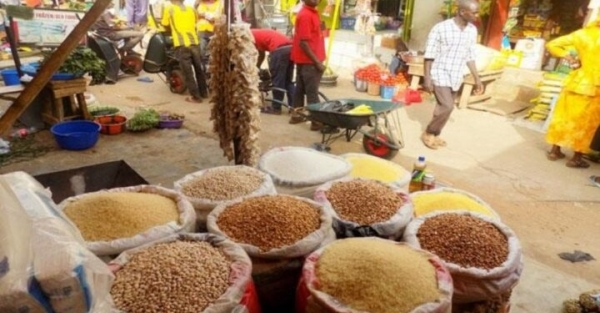As Eid-el-Kabir approaches, the rising cost of food items has put a damper on the festivities with many Muslim faithful struggling to make last-minute purchases.
Despite their best efforts to save money and prepare for the holiday, inflation and economic instability have left many families unable to afford traditional dishes and gifts, as the harsh economic reality threatens to overshadow the joy of the occasion.
In markets across the city, the already high prices of essential holiday items such as rams, rice, and other foodstuffs continued to climb, straining the budgets of even the most financially secure households.
The hike in food prices was not just a nuisance but a sobering reminder of the ongoing economic crisis that has gripped Nigeria.
With inflation surging and salaries failing to keep up with the rising cost of living, many families found themselves forced to make difficult choices when it came to their celebrations.
As the sun set on the eve of Eid-el-Kabir, a sense of unease permeated the atmosphere. The air was filled with a mix of anticipation and anxiety as Muslim faithful weighed their options, torn between upholding the traditions of their faith and the harsh realities of their economic circumstances.
Despite the challenges, the holiday spirit remained resilient. For some, the determination to make the most of the occasion was too strong to be quashed by financial worries.
In the crowded markets, the hustle and bustle continued, as people rushed to secure the last of the supplies they needed. Some shopped with friends and family, while others navigated the crowds alone, single-minded in their pursuit of the perfect ingredients for their holiday meals.
The mood was a reflection of the human spirit’s ability to find joy in the face of adversity, even as uncertainty loomed over the city like a dark cloud.
In the popular Bodija Market in Ibadan, this reporter spoke with several Muslim faithful and vendors, each with their own unique stories and perspectives on the festivities.
Mallam Tunde, a rams seller, expressed his disappointment at the lack of sales this year, saying: “Usually, my stall is bustling with customers by now, but this year is different. Many cannot afford to buy even one ram.”
Khadija, a young mother, shared her struggles to prepare for Eid-el-Kabir. She explained that she had been saving for months, but inflation had wiped out much of her budget.
“I have three children and they’re all excited for Eid-el-Kabir, but I’m worried about disappointing them. We’ll make do with what we have, but it’s not easy.”
Similarly, Aisha, a housewife, said she had resorted to borrowing money to buy her family’s festive essentials.
“I don’t like to rely on loans, but what choice do I have? The prices keep going up, but our wages stay the same.”
As the reporter moved through the market, the sense of frustration and disappointment was palpable.
A vendor selling traditional garments for the holiday, Mallam Kabir, reported that his sales had also been affected.
“People are not buying as much as before. Many say they cannot afford it this year. It’s not just me who’s suffering; the economy is suffering too.”
A young woman, Fatima, shared her concern about the future.
“I worry for the next generation. What will life be like for them if things continue like this?”
As the reporter continued his interviews, a common thread emerged, hope. Despite the struggles, many remained optimistic about the future.
One such person was Alhaji Abdullahi, an elderly man with a kind smile.
“We’ve been through tough times before. We will get through this too. Our faith will sustain us.”
Others echoed his sentiment. Hajiya Zainab, a matronly woman, spoke of the power of community. “We must support one another. When one of us suffers, we all suffer.”
As the news story continued, the voices of ordinary Nigerians echoed the reporter’s concerns.
Aliyu, a young entrepreneur, expressed his frustration with the government’s inaction.
“We pay our taxes, we work hard, but what do we get in return? Inflation, unemployment, and now we can’t even afford to celebrate our holidays. The government needs to do better.”
Amina, a university student, shared her disappointment: “I thought we were making progress as a country, but it seems we’re just going backwards.”
However, residents of Ibadan, united in their struggles and hopes for a better future, made a collective appeal to the government.
“We are tired of empty promises and false assurances. We demand action. We demand solutions. We demand a government that listens and responds to the needs of its people.”
As their voices rose in unison, their message was clear, they would no longer accept the status quo. They deserved better, and they would not stop until they received it.


